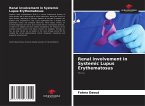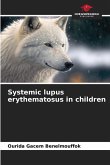Systemic lupus erythematosus (SLE) is a chronic and systemic autoimmune disorder characterized by loss of immune tolerance towards nuclear autoantigens such as SmD1, RNP70, Histone, Ro, and La. Although great progress towards our understanding of the disease has been made over the past 50 years and mortality is currently only around 10% within the last ten years, our knowledge of the factors that drive the pathology of SLE is still limited. The role of CD4+ T cells specific to nuclear antigens in the disease pathogenesis of SLE is yet not fully known because the detection of human autoreactive CD4+ T cells has been extremely challenging. In this book, the author Dimas Abdirama describes how autoreactive CD4+ T cell subsets participate in autoimmunity. The book provides insight into previously unrecognized pathogenic characteristics of autoreactive CD4+ T cells in SLE, expanding our knowledge in human systemic autoimmune disease.
Bitte wählen Sie Ihr Anliegen aus.
Rechnungen
Retourenschein anfordern
Bestellstatus
Storno








